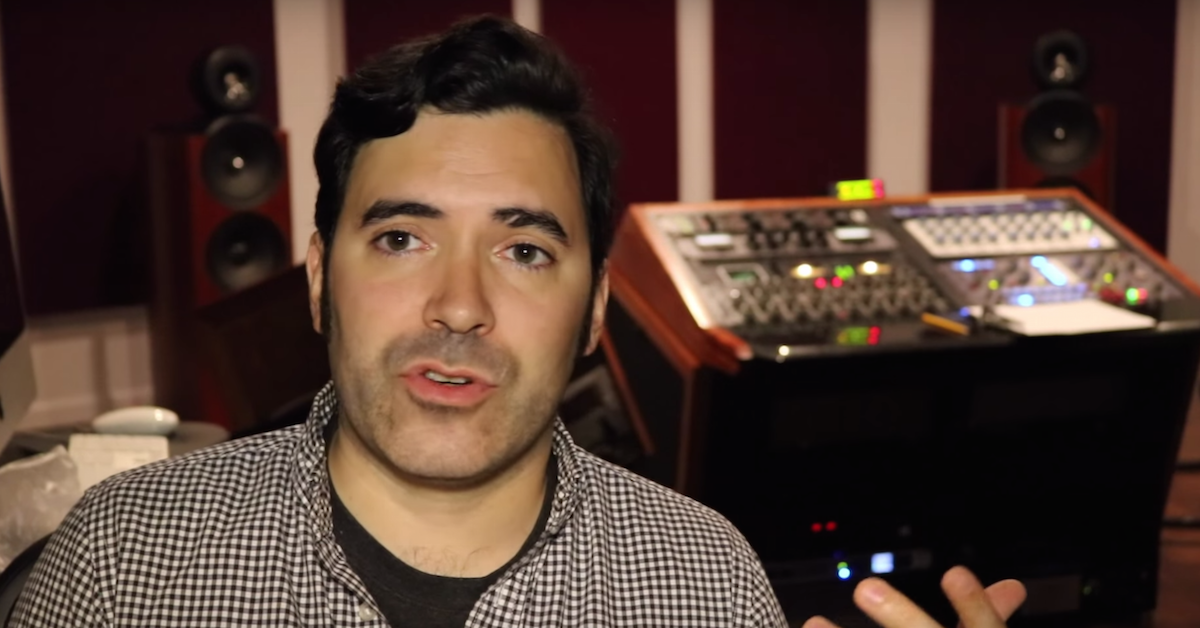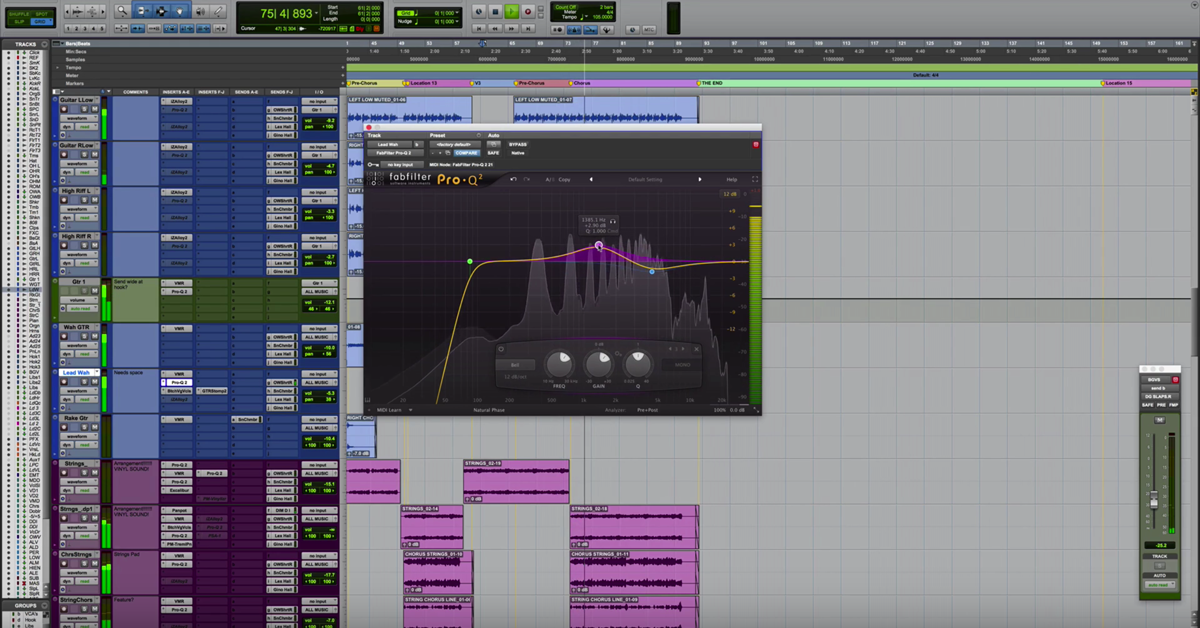6 Realizations That Helped Me Become a Better Mix Engineer
Article Content
Parallel processing — or maybe sidechain compression. Hyper-accurate analog-modeled plugins — or maybe real-deal analog gear. Tubes! Tape! Multiband compression! Mogami cables.
At least one of those things has got to be the secret to making better sounding recordings, right?
Yeah, I dunno… maybe. What I can say for certain is that my biggest moments of growth as a mix engineer were less about the techniques or the gear I was using and much more about the way I heard mixes and thought about my work. Less “what compressor to use on my drum buss,” and more “how to hear when that compressor is doing what I want.”
And honestly, those transformative moments were often about the bigger picture — a philosophical outlook and the way I approached my workflow. Here are a few of the realizations that have helped me level up over the years, starting with maybe the most important:
1. Finishing Projects Is Everything
The biggest difference between the years where I was recording and mixing on my days off vs. doing it every day is that projects get done — on time, on budget and above a certain baseline of quality.
That change came in part because I can be more confident about my choices now because my techniques are tested and practiced. But another huge part of it is just psychological: I’m not approaching every project like it needs to be the best thing I’ve ever done.
Don’t get me wrong, I very much still approach every mix like it needs to be the best that it can be.
Do you see the distinction there? One mindset makes it more about me, the other makes it about the artist and their work. The “best thing I’ve done” mindset makes it very easy to spend months working on one thing, chasing diminishing returns, or to abandon it entirely if it looks like it won’t pass muster. The “best it can be” mindset puts a target in your sights and makes it much easier to hit.
“The best thing I’ve done” is not realistic for every project. “The best it can be” absolutely is.
The value in this discovery is that finishing projects is the only real way to grow at what you do. It’s about going through all the stages — the original concept, the excitement at seeing it come together, the inevitable frustration and disenchantment, figuring things out and finding (often imperfect) solutions in spite of that — and then, at the end, being able to look back on the whole thing and absorb real lessons from it.
Ironically, absorbing those lessons each time raises the chances that the next thing you work on really will be the best thing you’ve ever done. What lessons do you learn from abandoning something when inspiration runs out? You learn that it’s cool to feel inspired. Anyone could have told you that.
2. Metering Is There to Help You
I know, the sound is what really counts. You should mix with your ears not your eyes. Blah blah blah. The conventional wisdom here is solid, but allow me to make a humble suggestion: look at your meters to give context for the sounds you’re working with and to inform the choices you make.
Are you trying to use a lot of compression, or a little? (And for that matter, how much do you define as “a lot?”) Are you trying to drive that tape echo into the red, or to use it more subtly? Were you intending to have that plugin you just added make the track twice as loud?
Ultimately, your ears will make the final call about what sounds good. But particularly if you’re working entirely in-the-box, there are tons of sources of visual information in your setup that can help you understand what “sounding good” even means in a given context.
On top of that, getting used to keeping an eye on meters and peak levels is crucial, because…
3. Gain Compensation Is Huge
I’m somewhat embarrassed to admit how much, early on as a mix engineer, I allowed myself to keep plugin settings that weren’t doing much to enhance a track beyond making it louder. One of the most crucial turning points for me came when I learned how to keep an eye on levels and remain objective as I dialed effects. That one small step seemed to change everything.
The crux of this transformation was understanding the importance of gain compensation, but let me back up for a second. What I mean when I say “gain compensation” is: adjusting the output gain of an insert effect so that the level coming out is the same as the level going in. To understand why this simple step was so transformative, consider this situation:
You throw a compressor on a vocal track because you want to control the dynamic range. You dial it quickly, and the end result is that in addition to that dynamic control, the vocal track is now three dB louder overall (meaning the loudest moment now peaks three dB louder than it did before). And it sounds great!
Except, does it? Our ears will tend to prefer the louder of two options when making a snap judgment. Your opinion of what the compressor is doing is being boosted by the fact that the track is simply louder with it engaged.
If you take the extra few seconds necessary to make sure that an effect isn’t boosting the level of a track, it allows you to make better calls about whether that effect is working as intended or not. If I can A/B that vocal compressor and say that I like it better on without having the vocal be any louder, then I know I did something right.
4. My Mantra: “The Same, but Better”
In order to improve something, you have to change it, right? If a song gets “better” during mixing, doesn’t that mean that it’s somehow different?
For a long time, I thought the answers to those questions were “yes.” But my biggest growth as a mixer came when I started mixing without fundamentally changing the sound of a recording.
This concept is essential if you’re someone who mixes other people’s productions, but it still holds true even if you’re mixing your own work. I find it helpful to think of any sort of “creative effects processing” or “studio as instrument” techniques as belonging to production, rather than mixing. That type of production shapes the music itself, while mixing is more about making the elements of that recording work better together.
Am I saying that mixing isn’t creative? Hell no! Mixing is intensely creative — but that doesn’t mean that mixing is about radically transforming a song. In fact, nine times out of ten, I’d say mixing is about working with what’s there — helping the production “speak” more clearly and giving everything a bit of a “lift.” In other words: the same, but better.
What exactly this concept will mean for you specifically depends on the particulars of how you work. What I can say for certain is that it’s easier to embrace this goal if you’ve internalized the last few points I mentioned. “The same, but better” is only possible if you’re not trying to force yourself onto the mix — and if you can maintain some level of objectivity about what “better” even means.
5. It’s Not as Complicated as You Think
Do you ever get the sense while mixing a track that some element of what you’re doing is beyond your understanding? That you do things — tricks you picked up from articles and videos — that are changing sounds in ways you don’t fully appreciate until you hear your mix in the car or on your phone? Have you ever spent hours tweaking effects, not sure how what you were doing would pan out? Do you get the feeling that you need to be doing something that you didn’t quite fully understand?
I’m here to tell you now that you truly do not! Yes, learning to hear subtle qualities and changes in sound is a huge part of getting better at mixing. But you can’t develop that skill overnight. More importantly, most of what makes a mix really work is big, broad strokes stuff: does the kick or the bass dominate the low end — and can you hear them both? How forward is the vocal? How do the instruments negotiate midrange frequencies? Is the mix spacious, or intimate?
Trust that your judgment is enough to help you make choices as you mix. Don’t worry that something you can’t really hear is somehow more important than what you can. You will someday learn to hear things that you can’t today — but that isn’t going to help you right now. Make choices about the big stuff — like balancing volume levels — and get more detailed from there. Start with the things you’re certain about, and pay attention to gut reactions. They’re right more often than you think.
6. The Artist’s Experience Is What Counts
Go onto your streaming platform of choice, and find an artist you’ve never heard of. Not a popular artist — a truly obscure one, with low play counts on songs. Pick one of those forgotten tunes and have a quick listen. I guarantee you that there is a 0% chance that a better mix would have turned that song into a hit.
Don’t get it twisted — I’m not bringing this up to imply that mixes don’t matter. They do. And if you picked a song with plays in the hundreds of millions, you’d be much likelier to hear a great mix than not. My point is this: mixing can be important, but don’t fool yourself into thinking the mixer’s ideas are worth more than the artist’s.
Artists hiring a mix engineer, generally speaking, are looking for their skills, experience and perspective. But they also want someone who shows that they understand what the music is about, that they care about what the artist is doing, and that they take that artist’s vision seriously. Slowing down a project by arguing with an artist or trying to explain their own music to them is the fastest way to kill that kind of trust, even when you are “right.” Using the snare reverb you like is not going to turn the song into “Despacito.*”
There’s a certain amount of ego swallowing that has to happen in order to adopt the mindset I’m describing, and that can be a hard thing to do. It was hard for me. They key is to remember that, as much power as a mix can have over the way a recording turns out, mixing is only one step in a process. Commit to your role, and let the artist know that you’re there to support them every step of the way.

*I’m assuming that Despacito will remain an iconic, international megahit, instantly recognizable to readers for decades if not centuries to come
Conclusion
You can read articles & watch tutorial videos all day and pick up some excellent mix techniques that way. But my experience was that it took more than a few cool tricks to truly “level up” my mixing skills. My favorite gear, plugins and mix moves are constantly changing — but the thing that keeps me moving forward is a mindset, more than anything.
If you’re serious about upping your skills as a mix engineer, it’s about being in it for the long haul. Keep finishing projects, keep listening deeper, and keep being honest with yourself. You might surprise yourself at how far that basic recipe will take you.





